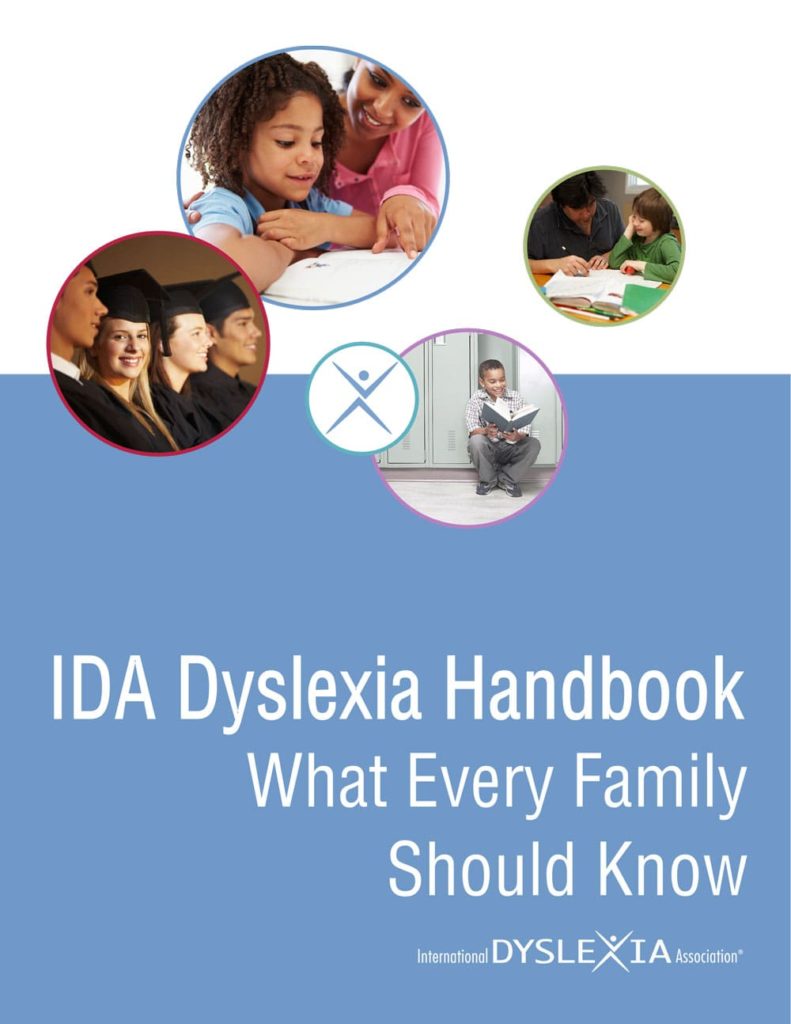When you've got questions,
we've got your back.
When your child is struggling to read, the questions flood into your head—What could be happening? Will this get better? Where can I go for help? The questions can seem endless and the path is unclear.
As a branch of the International Dyslexia Association, we're here to tell you there is hope. And now you have an expert partner on your path. We can help you define and understand the characteristics of dyslexia, give you resources for assessment, testing and tutoring, guide you in dealing with your school and much more.
Parent Resources
Access books, articles, videos, and other materials to help you better understand and support your child with dyslexia.
Learn More:: GUIDANCE ::
How to Manage a Student's Education
Educate Yourself
Attend conferences, read suggested books, and network with parents who "have been there." By educating yourself, you not only maintain self-confidence to help you deal with professionals in the field, but also, you are in a stronger position for making informed decisions about your child's educational career and emotional life.
Create a Notebook of Your Child's Work
Invest in a 3-ring hole punch and buy a 3-ring binder. Compile your child's work-everything from crinkled homework sheets, to returned tests, to workbook pages. Organize the papers chronologically and by subject matter. Include anecdotal information as well. Bring it to meetings as written documentation of your child's progress (or lack of progress).
Keep Expectations High
Too often, teachers and parents lower their expectations because of their child's learning difficulties, when, in fact, these children need high standards and reasonable goals. When expectations are high, students are forced to face their difficulties. There will be times of setbacks and moments of frustration, but that doesn't mean you lower your standards, it means to help your child persevere in the face of adversity.
Visit Your Child's Classroom Often
Volunteer your time in your child's classroom in any capacity. Your goal is to foster a close working relationship between you and the teacher. You will have an insider's view of the teacher's teaching style. With this perspective, you will certainly feel more empowered when managing your child's education, in general, and more able to help with individual homework assignments.
Keep a File of Potential References
Names of reputable tutors who are trained in structured literacy; pediatricians who understand learning disabilities; counselors who deal specifically with emotional support and educational planning; an objective partner who can accompany you to school meetings; psychologist who treats children and adolescents with learning disabilities, etc.
Be Patient on Off Days
An "off day" is when things just aren't in sync for your child. It is important to help your child recognize these days and acknowledge feelings of frustration and discouragement. It is equally important to help your child develop strategies to manage these days. Reassure your child that "off days" will occur, knowing that tomorrow will be a better day.
Read Aloud With Your Child
While your child is receiving intervention for their decoding difficulties, they are most likely reading controlled texts (words in which they have been taught how to sound out). It is important to expose children to additional vocabulary through being read to by an adult or through audio books. Students who have been exposure to a variety of language have a distinct advantage over those students who have not had the same experience with language.
Let Your Child Be An Expert
Whether it be a non-academic skill such as sewing, tree house building, or drawing - or whether it be a storehouse of knowledge about a specific subject, such as animals, sports, movies, computers, or music - help your child develop an area of expertise. It will provide opportunities for your child to shine in front of his or her peers and meet others who share a common interest.
Start A Dialogue With Your Child
Talk to your child about his or her learning difficulties. Be honest. Be matter-of-fact. Your goal is to demystify the notion that something is "wrong."
Keep a Sense of Humor
Learning is a challenging, often a painful experience for children with learning difficulties. They need laughter in their lives, and lots of it!
Frequently Asked Questions
I suspect my child has dyslexia. What should I do next?
It's a good idea to document all the reasons why you believe your child struggles.
Reviewing the characteristics of dyslexia is a great start.
Next, talk to your child's teacher. Often, teachers are excellent resources of information regarding areas of strength or weakness in your child's performance. If you believe your child requires extra school supports, the next step is to see if he/she qualifies for special education services.
Does my child need a medical diagnosis for dyslexia assistance at school?
No. A medical diagnosis is not required for qualification for special education under the category of Specific Learning Disability.
In fact, a medical or psychological diagnosis of dyslexia will not automatically qualify your child for Special Education services.
If my child is tested by a reputable outside agency, does the school have to accept the diagnosis?
No. Schools have the right to verify and/or supplement the testing results you provide, and will generally incorporate the findings into their own comprehensive evaluation and report, which must include classroom observation.
What is the difference between an IEP and a 504 Plan?
There are important differences between these two types of educational support plans. An Individualized Education Program (IEP) is more comprehensive and provides specialized instruction, while a 504 Plan focuses on accommodations within the general education setting.
The IDA offers detailed comparisons between these plans, covering eligibility requirements, documentation needed, and the legal protections each provides.

:: FREE DOWNLOAD ::
The IDA Dyslexia Handbook
What every family should know!
- Characteristics of Dyslexia
- Valid Assessments for Dyslexia
- Identifying Effective Teaching Approaches
- Managing the Education of a Student with Dyslexia
- Transitioning into College
- And much more!
